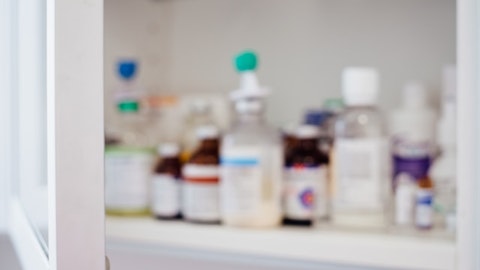Aydin Huseynov: Right, yeah. Make sense, make sense. Okay, all right. Thanks so much for taking questions and congratulations for the progress.
Richard Miller: Thank you, Aydin.
Operator: Our next question is from Jeff Jones with Oppenheimer. Please proceed with your question.
Jeff Jones : Good afternoon, guys. And thanks for taking the question. Richard, just a quick question on that ASH related press release for the updated data. Is that going to be — do you have sort of a feel for timing on when that announcement will come out? And then in terms of the data itself, as Aydin had mentioned, you’ve previously shown an ORR around 43% or around 40%. And there’s an abstract out at ASH with the similar ORR. So I guess similar to what was just asked on the RCC, how are you thinking about the efficacy bar for soquelitinib in PTCL?
Richard Miller: So regarding to the timing of the announcement, we would put that out concomitant with the disclosure of the poster. So around when is ASH December 9 or so, around that date. Regarding the data, I think the data is pretty consistent. Now you asked what do I consider a good response. I consider anything above 25%, again, with durability and safety, oral drug to be a good outcome.
Jeff Jones: Okay. No, I appreciate that. And then on partnering, as you discussed in your prepared remarks, would this be limited to soquelitinib in the autoimmune inflame indications? Or would you also consider oncology partnerships for soquelitinib or other programs in oncology, perhaps by territory?
Richard Miller: I think what we’re thinking now, Jeff, is that the inflammation immune disease represents a good partnering opportunity because we have a series of backup molecules that are pretty close to the clinic. We know they work in animal models. They have desirable pharmaceutical properties. They’re separate from the oncology molecule, which a lot of people want. And it’s such a novel approach and potentially advantageous over the other approaches as Dr. Rosenbaum mentioned. And I think we have a really strong intellectual property position. And we’re already getting significant inbound interest on partnering the immunology part of it, the immune disease part of it. Now, we like that because our expertise is cancer, and autoimmune disease, as you know, there are many different types of autoimmune disease that crosses disciplines like pulmonary medicine and dermatology and rheumatology, et cetera.
So we think a company at our stage with our resources, partnering the immune disease aspects makes the most sense and allows us to continue to focus on T cell lymphoma and solid tumors. So that’s sort of our strategy now. Now things could change, obviously, depending on the interest of partners and so forth. Does that answer your question?
Jeff Jones: Yeah. No, I appreciate it. Richard, I’ll jump back in the queue.
Operator: Our next question is from Roger Song with Jefferies. Please proceed with your question.
Roger Song : Great. Thanks for update and taking my question. Maybe a quick one — two quick questions. So one is, Rich, you said you will start a Phase 3 PTCL trial in second quarter next year. Maybe just help us to understand what’s left before the initiation. And I think you talked about IRB approval, any other logistics kind of steps you need to compete? And the other thing is — another quick question is regarding the runway and the funding. Your runway is towards the later part of the 2024 while you’re starting Phase 3. How should we think about the funding of the Phase 3? Thank you.




